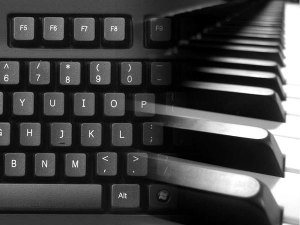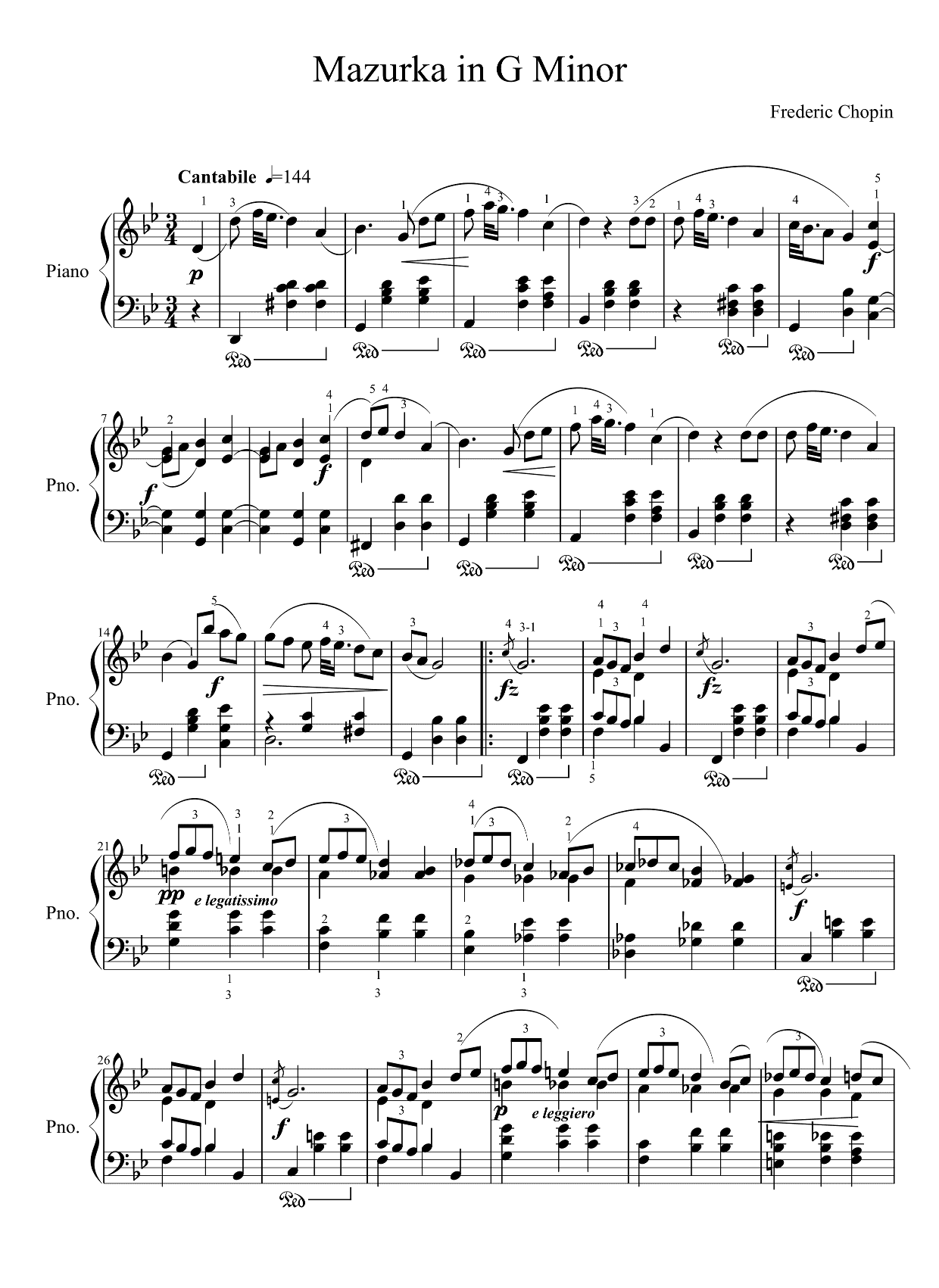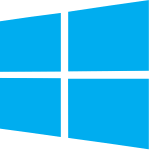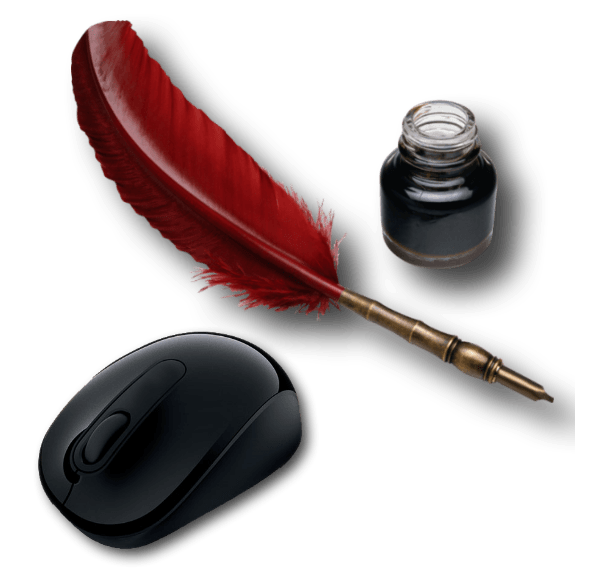Score Editing Softwares
Index
If music paper and pen are no longer enough for you, this doc will tell you everything you need to know to get started with computer-assisted sheet music editing.
Overview

The computer has become a natural tool for word processing and communication, but the same cannot yet be said for writing music.
Let's be clear from the outset, it is out of the question for us, a site dedicated to music paper, to prevent the musician from scratching the paper with a pen, or to deny him the huge pleasure of throwing his pencil in an amazing spiral which, after many twists and turns, will give birth to THE most beautiful treble clef.
The computer, this tool (because it should only be considered as a tool), can make our life easier without making us sacrifice our know-how, our convictions or our pleasure. Too often, out of ignorance or lack of skills, one has opposed the musician and the machine. It's time to move on, to accept the tremendous possibilities offered by computers, and to give back to the musician what will never be the prerogative of a computer: creativity, talent and sometimes even genius...
A Score Editing Software... But Why ?
Now let's see what sheet music editing software can do for you and what it will never be able to do for you :
"With a score editing software, I can create scores with a finish worthy of a professional editor." TRUE!
However, you will need a certain number of hours and perhaps even adequate training to be able to deal with all the scenarios. The printer at your disposal will significantly affect the quality of the print run and will, in most cases, limit the size of A4 or letter size pages.
"With a score editing software, I can create scores with a finish worthy of a professional editor." TRUE!
However, you will need a certain number of hours and perhaps even adequate training to be able to deal with all the scenarios. The printer at your disposal will significantly affect the quality of the print run and will, in most cases, limit the size of A4 or letter size pages.
"Overall, I will save time on writing my scores." FALSE!
In most cases, a good copyist will write a score faster than a computer. This is especially true when the score is rhythmically complex. Even if some software allows the notes to be entered by playing on a keyboard, corrections, setting up nuances, slurs, layout... will take a lot of time.
"Once my score is saved in the computer, I will be able to transpose it easily." TRUE!
With an score editing software, transposition is really child's play. For example, you will be able to make in a few moments a piece for clarinet and saxophone from a version for flute and oboe ...etc.
"I will only have to write the conductor and the separate parts will be generated automatically." TRUE!
Even if the process is nearly automated, the separate parts may require some minor layout fixes.
"The software will help me to harmonize/arrange a melody." FALSE!
Some editing softwares have some features in this domain, but it remains very basic and it is better not to rely on it.
"I will be able to listen my works straight from the score." TRUE!
The quality of the (synthetic) sounds is not always up to scratch, but it still allows you to get an idea on the spot ...Burning a CD, directly from the score, remains a difficult, if not impossible operation on most software. On the other hand, it is easy to export the score to an audio file (wav, mp3, ogg...).
Before You Start...

The prerequisite to take the plunge is, of course, to feel comfortable in front of a computer. If you don't yet know how to surf the internet how to send and receive e-mails or if you have never typed a letter on a word processor, it is not yet time to give it a go.
So start by training yourself in the three basic areas of everyday computing, namely :
- Word processing
- Internet
Once you have acquired these initial skills, you are now able to master a certain number of actions such as saving or printing your documents. It is now possible to move on to the next stage.
My First Software...
There is an extensive range of software for editing sheet music. You will choose the one that best meets the criteria you consider most important. We therefore advise you to take into account :
-
Comfort and ease of use.
If you are not yet an experienced computer scientist, or if you are always fumbling around using a word processor, then this is the most important point for you.
-
Extent of capacities: ability to produce complex scores
The most complete software allows to realize all types of scores, from Gregorian to ultra contemporary. Almost no limitation exists with these programs and, if you know how to use them well, they will allow you to create any kind of score. The flip side of the coin is that they are less easy to master than the most ergonomic software.
-
Rendering quality for the final printing of the scores (precision, aesthetics...)
Most software has a correct rendering and sufficient quality for occasional use. If you want to produce perfect quality works, the choice is very limited. As far as we know, at present, two softwares share most of the professional market.
-
Speed of input and other operations (layout, corrections, etc.).
Even if it is not your primary concern, the speed, and therefore the time it takes to complete a score is one of the essential criteria. Input speed varies according to the user's skill level: a beginner will easily and therefore quickly be able to enter notes by "drag and drop" (taking a note with the mouse and placing it on the staff), while a more advanced user will opt for software optimized for mixed input (Mouse/keyboard/midi).
-
Make sure that your work can be reused over time.
In order to be able to transfer your files from one software to another, and most of all, in order to be able to use them in many years, it is important that your score editor manages open formats, i.e. readable and editable on most work platforms. The Midi format is a minimum requirement, but compatibility with the musicXLM format has also become essential.
-
... The price !
The price range is from a few dozen to several hundred euros.
Let's Get On With It...
The purpose of this article is not to suggest you the best software, but to allow you to choose it yourself according to your needs. It should be noted that almost all publishers offer an evaluation version of their software. You will thus have the ability to test the programs yourself and find the one that suits you best ...
Below are a few, but keep in mind that this is only a small sample from the plethora of existing programs.
-
Finale® (MakeMusic®)


Software for professionals. Many scores that have passed through your hands were made with Finale ... Its features are impressive, but what sets it apart above all is the quality of its renderings. The only point against it is its difficult handling which will reserve it for the most advanced users. Finale has nevertheless evolved a lot on this side over the versions, and the task is not impossible for those who want to take the trouble to learn how this remarkable software works.
-
Sibelius® (Sibelius Software)


The other leader in professional publishing. If Finale is a Formula 1 car that requires a real driving science to express its full potential, Sibelius is rather a big luxury sedan, capable of making you perform with true performance in extreme comfort. Thanks to its very good ergonomics, the realization of a score becomes a real pleasure. However, it will take a few hours to get used to it before you can get the best out of it.
-
MuseScore



The latest addition to our comparative guide, MuseScore deserves your attention for many reasons. The main one being of course its entirely free of charge (open source software). However, this does not mean that it is a discount bad software. On the contrary, the quality of the rendering, the ergonomics and the wealth of functions continue to bring it closer to the market leaders.
Conclusion...

As you will have understood, there is no software that can, by its versatility, adapt to the so varied expectations of all users. However, given the richness of the offer in this field, it is likely that you will be able to find the software that will meet your needs. Once again, we can only recommend that you try the different editors in their trial versions. Don't forget to consider, in addition to the cost of the software, related expenses such as a good printer, a midi keyboard and maybe even a scanner with scanning software. If, despite our advice and encouragement, you remain fiercely opposed to these new ways of writing music, you are left with only the noblest option: Take out your eraser, sharpen your pencils and download from our collection the music paper that will satisfy you !